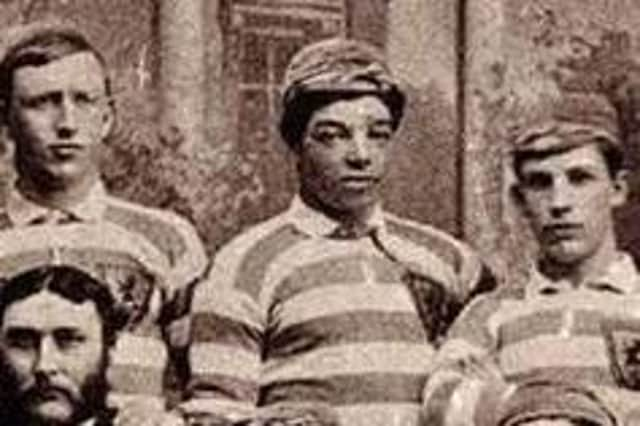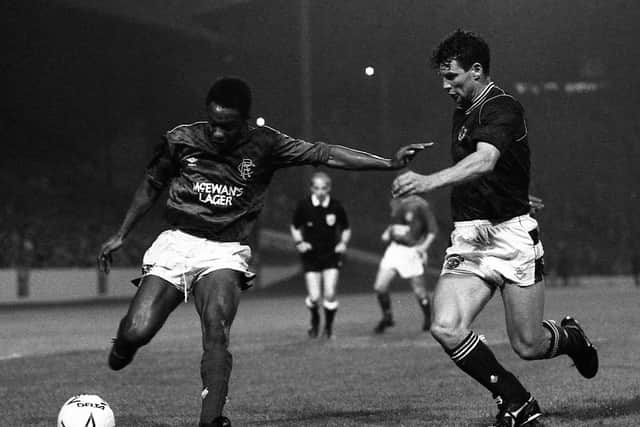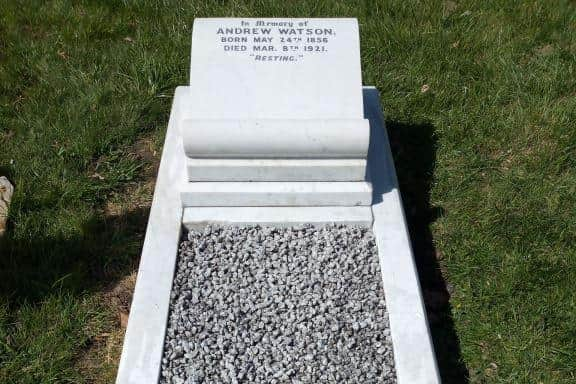Alan Pattullo: Rangers hero's presence at London ceremony demonstrates enduring legacy of Scottish football's black pioneer
This article contains affiliate links. We may earn a small commission on items purchased through this article, but that does not affect our editorial judgement.


This connection with Queen’s Park, with whom he won three Scottish Cup winner’s medals, is not why Andrew Watson is being remembered today – at least, it is not the only reason.
It is not why the former Rangers winger Mark Walters will be present at Richmond Cemetery, standing by plot 6231 in section four of the 15-acre site in south-west London.
Advertisement
Hide AdAdvertisement
Hide AdWalters is the subject of a forthcoming BBC documentary detailing his experiences as a black player in Scotland He will be filmed saluting Watson, Scotland’s first black footballer and the first in the world to play at international level, at a ceremony attended by several Scotland fans – Watson has no known descendants – to mark the refurbishment of his grave, 100 years after his death. A piper will also play.


Watson’s final resting place is around nine miles from the scene of one his finest moments, when he skippered Scotland on his debut to a 6-1 victory over England at the Kennington Oval. It remains England’s heaviest home defeat. Watson was considered among the 19th century's finest full-backs.
Redoubtable Belfast-based Scotland fan Alistair Firth last year started a crowdfunder to raise funds for both the refurbishment and continued upkeep of his grave.
Knowledge of its whereabouts is down to the sterling work of Scottish football historian Andy Mitchell, who in 2013 discovered Watson’s final resting place was a lot nearer Glasgow, where he played most of his football, than previously thought.
It was presumed Watson had died in Australia. As revealed in The Scotsman eight years ago, Mitchell’s research unearthed a later Liverpool chapter in Watson’s life on top of the time he spent at Bootle FC in the late 1800s. The historian established he had died in London rather than the other side of the world, seeing his grave with his own eyes for the first time on the day the England v Scotland fixture returned after a long absence at Wembley in 2013.


A local stonemasonry firm was recruited to restore the weathered headstone. After cleaning all the dirt off, they found it was made of gleaming marble - testament to Watson’s status and comparative wealth, although there’s no mention of his footballing achievements.
Along with the date of his birth, 24 May, 1856 – which Mitchell was particularly excited to learn, since it is nearly a year earlier than the one mentioned in records – and death on 8 March 1921, the inscription states, simply: “Resting”.
With Watson’s reputation restored to the extent he is the subject of a biography by Llew Walker published to mark the centenary of his death, the plan is to pitch a plaque of some sort detailing his extraordinary football feats and role as a trailblazer. The fact it then took so long for black players to become established in the Scottish game, and elsewhere, must be recognised, hence Walters’ presence.
Advertisement
Hide AdAdvertisement
Hide AdEven as late as the second half of the 1980s the Ibrox winger endured persecution, something which continues to be the case for many black footballers to this day.
A message from the Editor:Thank you for reading this article. We're more reliant on your support than ever as the shift in consumer habits brought about by Coronavirus impacts our advertisers.If you haven't already, please consider supporting our trusted, fact-checked journalism by taking out a digital subscription https://www.scotsman.com/subscriptions
Comments
Want to join the conversation? Please or to comment on this article.